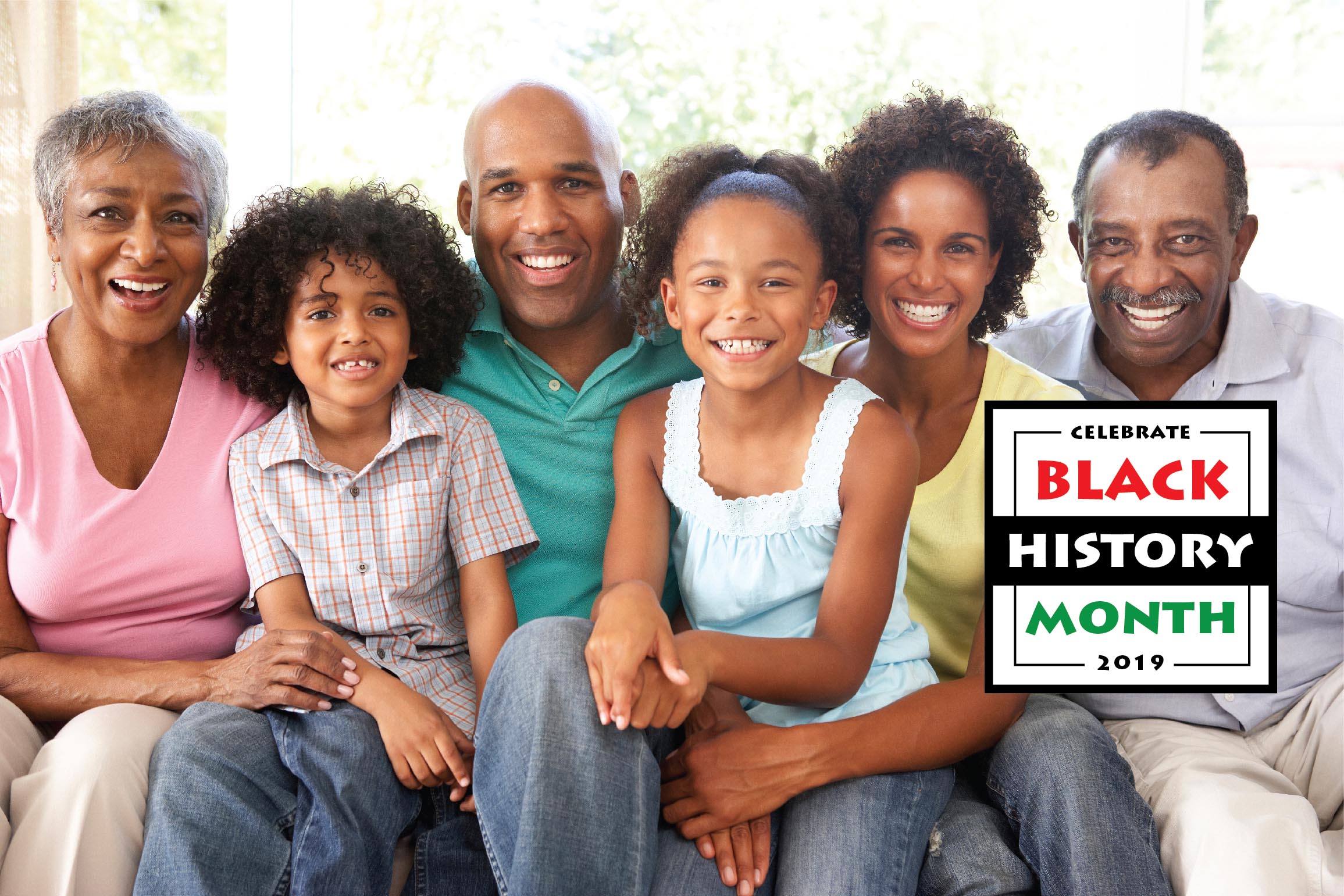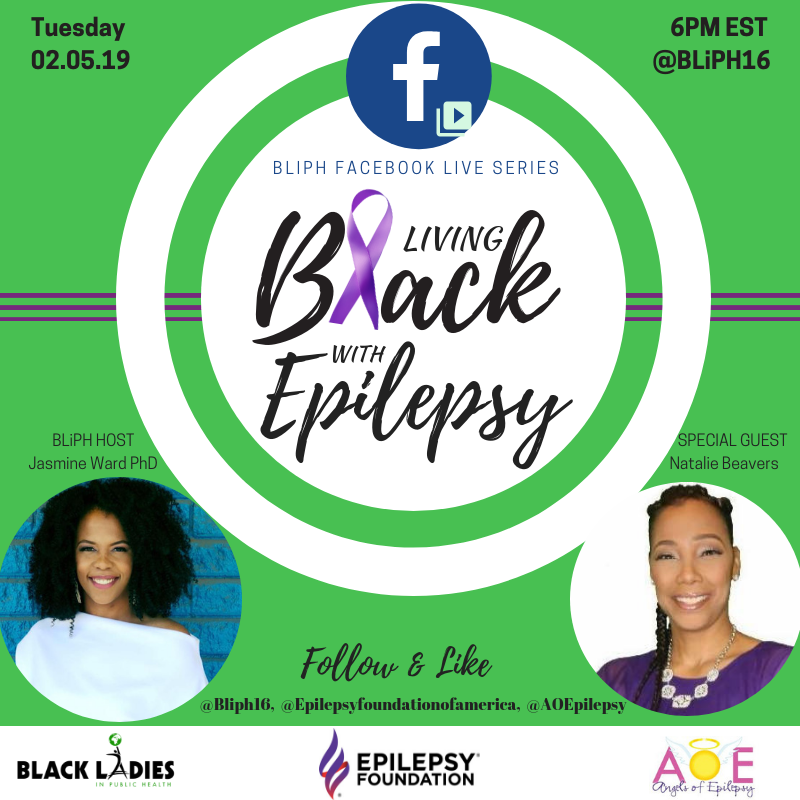Black History Month 2019: Reaching Out to Minority Communities

Epilepsy News From: Friday, February 01, 2019
For this year’s Black History Month, the Epilepsy Foundation is highlighting our efforts to reach African Americans and other minority communities in the United States who live with the challenges of epilepsy. Building awareness and providing epilepsy and seizure education in these communities is a key priority in our partnership with the Centers for Disease Control and Prevention (CDC).
A Gap in Knowledge and Understanding
People with epilepsy have substantially higher rates of death than the general population. According to the CDC, males and non-Hispanic Blacks have a higher age-adjusted death rate with epilepsy. An estimated 375,000 African Americans have active epilepsy. (Active epilepsy is defined as being diagnosed by a doctor or taking a seizure medication or having at least one seizure per year.) Yet there remains a lack of knowledge and understanding about epilepsy and its related conditions among minority populations. According to a 2005 study, a lack of knowledge and misperceptions about epilepsy in the African American community increased the stigma burden on African Americans with epilepsy.
How the Epilepsy Foundation is Reaching Minority Communities

Black Ladies in Public Health (BLiPH)
BLiPH is an online community of women from African American communities across the globe who promote scholarship, service, self-care, and support. BLiPH also provides a space for black women interested in training and working in public health. During Black History Month, the Foundation hosted a Facebook Live on February 5 on the BLiPH Facebook page highlighting epilepsy from a Black woman’s perspective.
There were some audio difficulties during this event. Listen with caution if your seizures are audio sensitive.
Faith-Based Organization (FBO) Outreach
Connections to FBOs are a proven public health strategy to reach minority communities about healthy living and preventing chronic disease. The Foundation gave grants to 10 local Epilepsy Foundations to provide epilepsy education and awareness to FBO leaders in minority communities.
As one example, the Epilepsy Foundation of Virginia (EFVA) recently worked with FBOs on an outreach project to the Hispanic community in Virginia. Since starting the project last October, EFVA has coordinated two awareness sessions with local churches.
National Association of State Offices of Minority Health (NASOMH)
- Each local office of minority health identified a specific community to implement the project.
- Some of these offices will use social media to raise awareness and provide education about epilepsy in African American communities. Follow the hashtag #EpilepsyEquity to join the conversation.
National Association of University Women (NAUW)
To reach organizations representing African Americans, the Foundation seeks to connect with national professional organizations with sizeable African American memberships to provide epilepsy education and awareness. In greater the Washington, D.C. area, the Foundation provided epilepsy education awareness presentations to the NAUW.
National Medical Association (NMA)
- Last summer, the Foundation delivered two presentations, “Epilepsy and Aging” and “Epilepsy and Stroke,” within the Neurology and Neurosurgery Section of the NMA Annual conference.
- This spring the Foundation will present at NMA regional meetings in the Mid-Atlantic and Midwest.
- The Foundation will also present at NMA 2019 Annual Convention and Scientific Assembly.
Regional Health Equity Councils (RHEC)
- The Foundation’s Vice-President for Programs and Services, Dr. Steven Owens, served on HHS Region III (Mid-Atlantic) Council.
- In 2018, Dr. Owens presented “Epilepsy and Minorities Communities” to all RHEC members across the U.S.
- The Foundation also worked with the RHEC’s Community Health Workers Committee to add epilepsy education and awareness as part of its national initiative.
Skill Building Institute (SBI)
Every year, the Foundation brings together leaders from our network of community partners and local organizations at the Skill Building Institute to learn from each other and improve service to people with epilepsy. To increase the capacity of our network to engage minority communities, recent SBIs have included nationally recognized presenters from state offices of minority health, departments of health equity, and minority serving organizations.
During SBI 2019, local Epilepsy Foundations will receive information and presentations on the National Cultural and Linguistically Appropriate Services (CLAS) Standards. With this training, they can include these best practice standards in their delivery of services for all people living with epilepsy.
Society of Public Health Education (SOPHE)
- In June 2017, the Foundation hosted a webinar on men and epilepsy. This webinar offered continuing education credits for Certified Health Education Specialists and professionals certified in public health.
- During last year’s National Epilepsy Awareness month, SOPHE hosted a webinar with Dr. Owens on epilepsy disparities and seizure first aid.
American Public Health Association (APHA)
Last November, Epilepsy Foundation staff attended the 2018 APHA annual Meeting and Expo to talk about how the Foundation is reaching out to special populations with epilepsy education. Nearly 13,000 attendees come to this conference each year, making it one of the largest gatherings of public health professionals. One of the staff presentations was, “Effective Epilepsy Health Education Strategies to Achieve Equity for African American Men.”
Learn More
Authored by
Steven Owens MD
Reviewed Date
Friday, February 01, 2019
